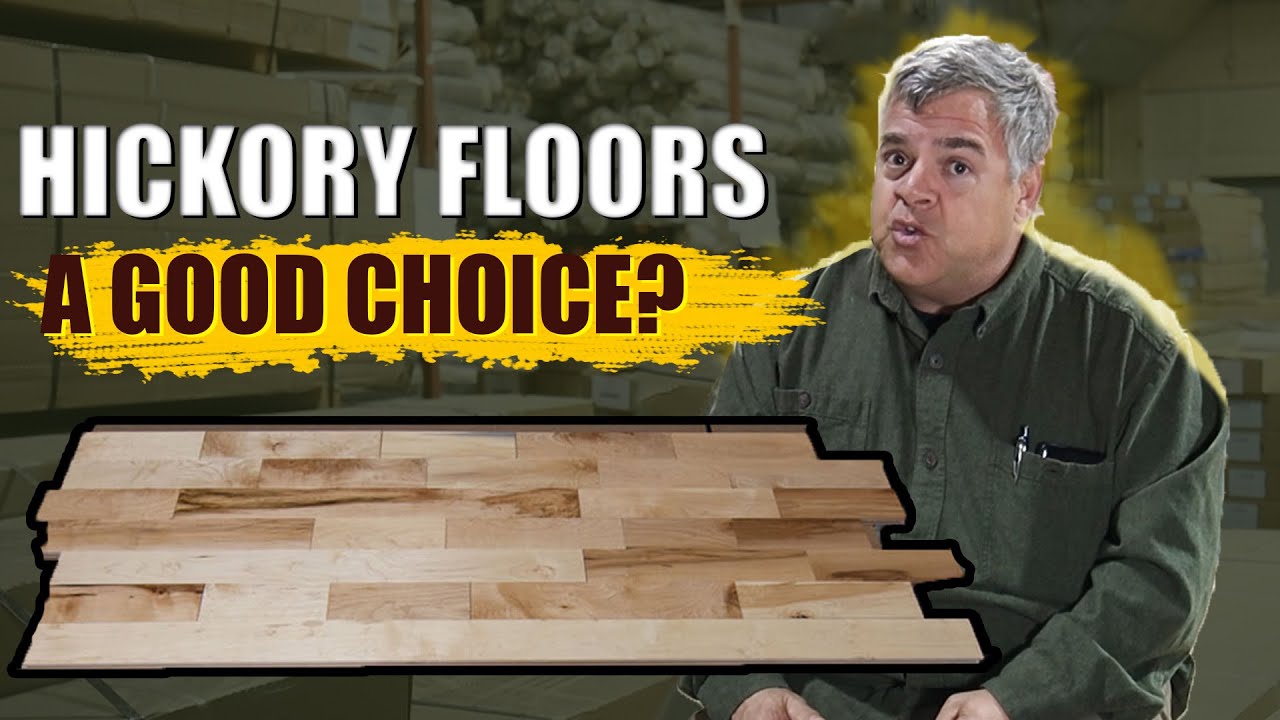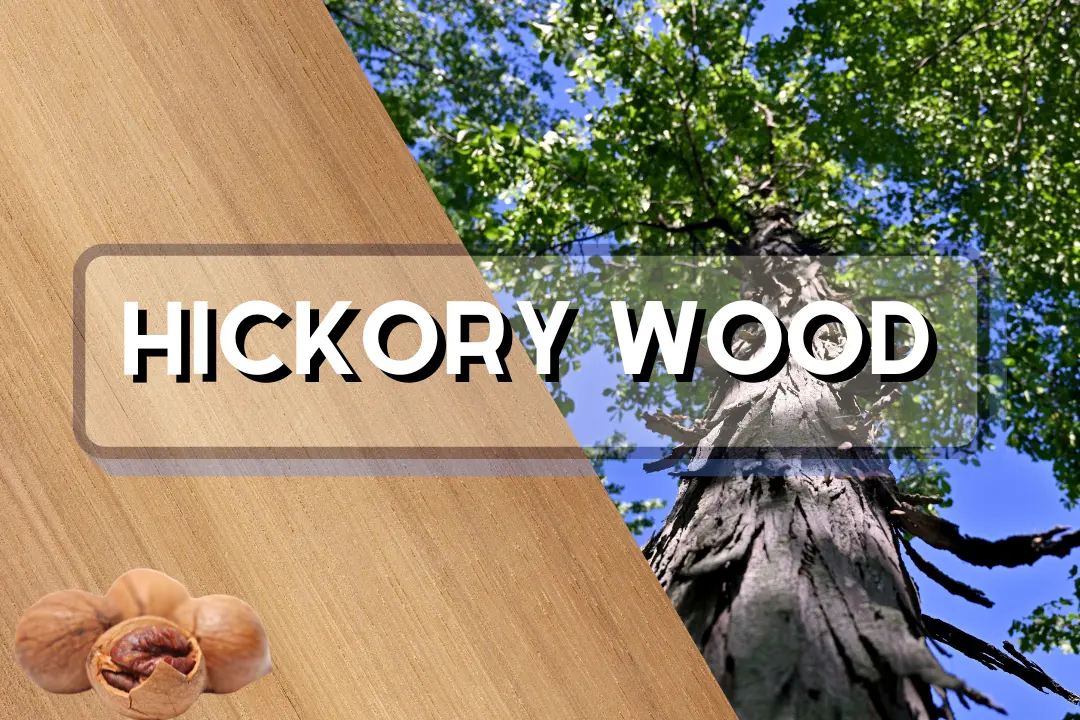
Hickory Wood Guide: Uses, Benefits and Durability

Did you know hickory trees help clean the air? They soak up a lot of carbon dioxide. This makes the air better in cities and the countryside.
Hickory wood is loved for its strength and how long it lasts. It’s great for making furniture and floors. In this guide, we’ll look at what makes hickory wood special. We’ll talk about its uses, benefits, and how to take care of it. It’s perfect for both beginners and experts in woodworking.
Table of Contents
What is Hickory Wood?
Hickory wood comes from several hickory tree species in the genus Carya. These trees are mainly found in North America. They are known for their incredible strength and durability, making them one of the toughest domestic hardwoods.
The lifespan of hickory trees is between 150 to 200 years. Some trees can live up to 300 years, with seeds that are just as old.
Hickory wood has a unique grain pattern and colors from pale tan to deep brown. It’s known for resisting decay and lasting longer than other woods like oak and ash. Many hickory trees grow tall, making this hardwood widely available.
This wood is used in many industries because of its strong properties. It’s great for making furniture, tool handles, and hardwood flooring. Hickory wood has a Janka hardness rating of 1,550 to 2,140 pounds-force. This makes it one of the strongest domestic hardwoods in America.
In summary, hickory wood is strong, beautiful, and durable. Its unique qualities make it a top choice in many fields. It’s a key player in the hardwood market.
Properties of Hickory Lumber
Hickory wood is known for its amazing properties. It’s very hard, which is shown on the hickory hardness rating on the Janka scale. It usually scores around 1,820 lbf. This makes hickory one of the hardest commercial hardwoods, making it very durable.
Products made from hickory are also very resistant to denting and wear. This makes them perfect for places that get a lot of use.
Density and Janka Hardness
The density of hickory wood is a big reason for its strength and durability. It has a specific gravity of 0.66, which is stronger than many other hardwoods. For example, white oak and hard maple are not as strong.
Many North American wood species have a Janka hardness between 1,800 to 1,900 lbf. But hickory is even harder. This makes it a top choice for flooring and other uses like tool handles and sporting goods.
Color Variations and Grain Patterns
Hickory wood has a wide range of colors. The heartwood is rich browns and reddish hues, while the sapwood is lighter. This creates a beautiful contrast.
Also, hickory has unique grain patterns that can be straight or wavy. These patterns add beauty and make the wood more durable and versatile.
Benefits of Using Hickory Wood
Hickory wood is highly valued for its natural properties. It’s durable and long-lasting, making it perfect for homes and businesses. With a Janka hardness rating of 1,820, it’s stronger than many hardwoods.
Exceptional Durability and Longevity
Hickory wood is known for its durability. It’s great for areas that get a lot of use. This means hickory products, like floors and furniture, can last for many years.
Hickory floors can last decades and can be refinished many times. To keep them looking good, sweep and mop them regularly. It’s best to have professionals install hickory floors to get the most out of them.
Versatility in Style and Application
Hickory wood fits many styles, from rustic to modern. It comes in over 50 shades of stain, so you can match any design. It’s not just for floors; hickory is also used in furniture and tool handles.
Hickory is a top choice for its mix of function and beauty. Plus, it’s good for the environment. It’s a great option for anyone looking for sustainable wood.
Common Uses of Hickory Wood
Hickory wood is used in many ways because it’s strong and looks great. It’s perfect for floors, furniture, and tools. Knowing how it’s used shows its versatility.
Flooring Options: Hickory Wood Floors
Hickory floors are strong and have beautiful grain patterns. They’re great for busy rooms like living areas and kitchens. They last long and add warmth and style.
Furniture Manufacturing and Design
Hickory furniture is both durable and beautiful. It’s perfect for tables, chairs, and cabinets. Its unique look fits many design styles.
Hickory for Tool Handles and Sporting Equipment
Hickory is great for tool handles and sports gear. It’s hard and can handle shock well. This means tools and equipment made from it last longer.
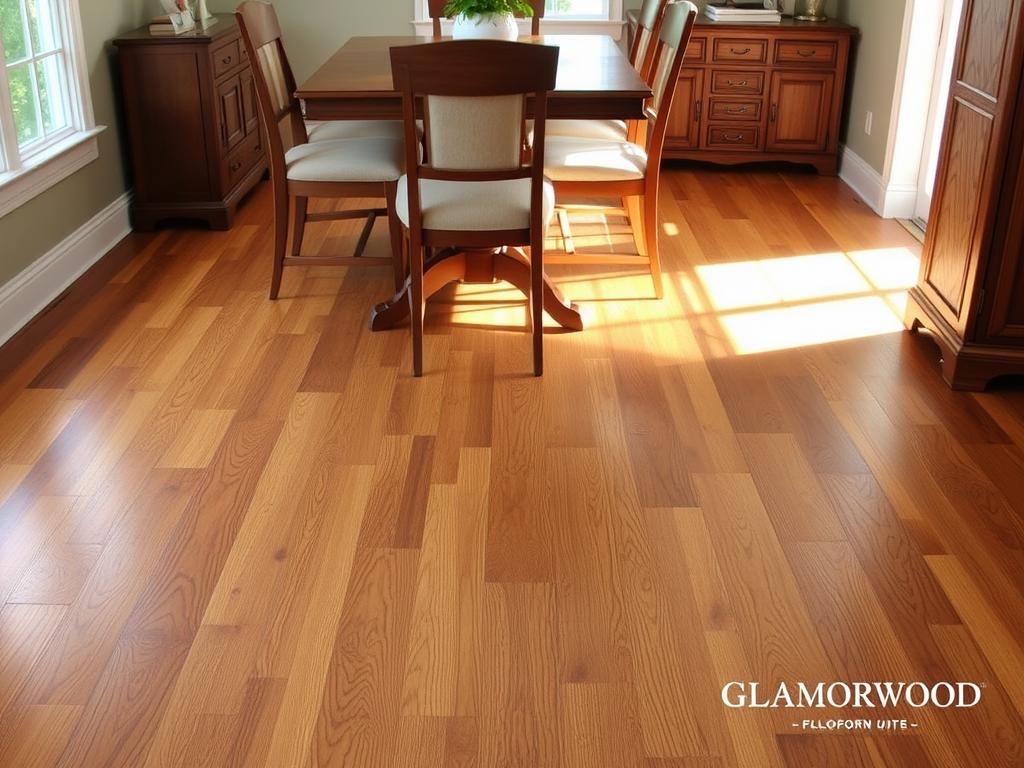
| Application | Benefits | Characteristics |
|---|---|---|
| Hickory Flooring | Durability, aesthetic appeal | Hard-wearing, varied grain patterns |
| Hickory Furniture | Strength, unique style | Robustness, natural variations |
| Hickory Tool Handles | Shock absorption, longevity | Extreme hardness, resilience |
Hickory Wood Types and Species
Hickory wood is known for its strength and durability. It includes over ten different species, each with its own unique features. Knowing these species is key to picking the right wood for your needs.
The most popular types used in lumber are Pignut Hickory and Shagbark Hickory. They are loved for their hardness and beauty.
Differences Among Hickory Species
Every hickory species has its own special qualities. They meet different needs in various ways. Let’s explore some of the main types:
| Hickory Species | Janka Hardness (lbf) | Common Uses |
|---|---|---|
| Pignut Hickory | 1,820 | Flooring, Furniture |
| Shagbark Hickory | 1,880 | Tool Handles, Furniture |
| Shellbark Hickory | 1,750 | Cabinetry, Flooring |
| Mockernut Hickory | 1,600 | Furniture, Flooring |
| Pecan Hickory | 1,540 | Tool Handles, Drumsticks |
Selecting the Right Type for Your Needs
When choosing hickory lumber, think about its durability, color, and use. Pignut Hickory is great for floors because it’s very dense. Mockernut Hickory is good for looks and is affordable, perfect for many indoor projects.
Match your project’s needs with the right hickory species for the best outcome.
Is Hickory a Hardwood? Characteristics Explained
Hickory hardwood is a standout in woodworking, known as a hardwood because of its strong features. It belongs to the Carya genus and includes species like red, shagbark, and pecan. Its high density makes it very strong and durable.
With a Janka hardness rating of 1,820 pounds, hickory is among the hardest woods. This makes it perfect for areas that get a lot of use.
Hickory’s modulus of elasticity is 11,900 MPa, showing it can handle weight and pressure well. Its impact bending is 1,120 mm, showing it’s resistant to breaking. Plus, its strength of 13,700 psi puts it at the top of durability among hardwoods.
Hickory’s density is 0.66, showing it’s very sturdy. It can live up to 350 years, making it a long-lasting wood. Its shrinkage rates are 8.9% tangentially and 4.9% radially, showing it stays stable in different humidity levels.
Here’s a look at hickory’s Janka hardness compared to other hardwoods:
| Wood Type | Janka Hardness (lbs) |
|---|---|
| Hickory | 1,820 |
| Hard Maple | 1,450 |
| White Oak | 1,360 |
| Beech | 1,300 |
| Red Oak | 1,290 |
| Cherry | 950 |
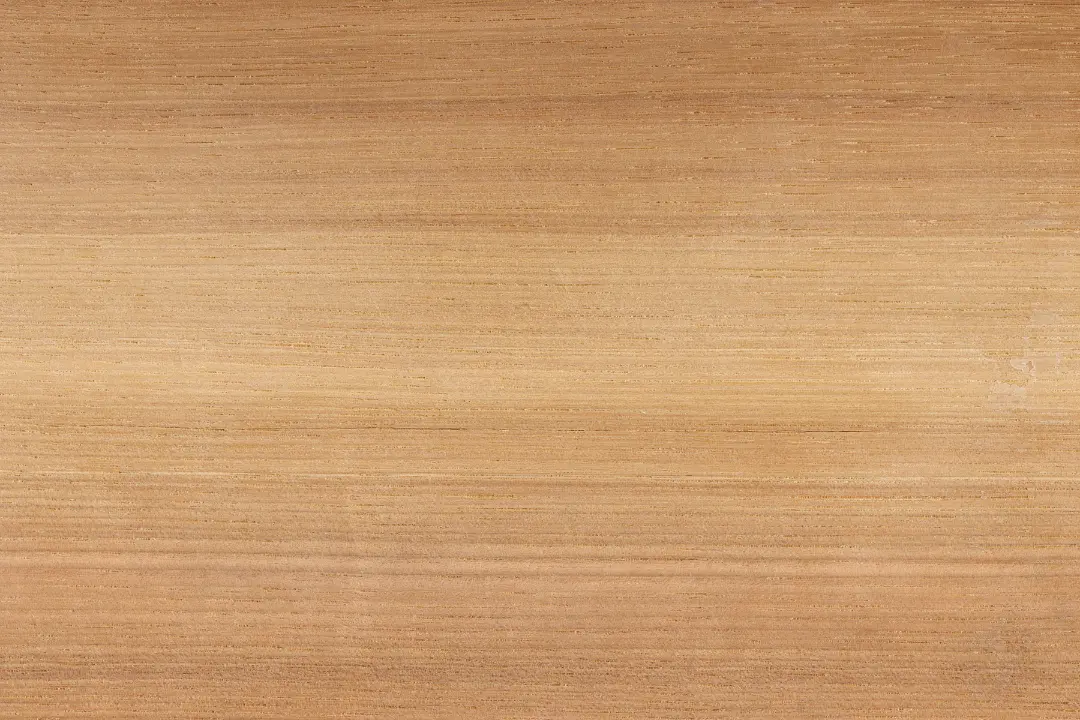
In summary, hickory is indeed a hardwood with many benefits. Its strength, durability, and versatility make it valuable in many woodcrafts. Knowing is hickory a hardwood confirms its place as a top choice in many projects.
Finishing Techniques
Finishing hickory wood needs special techniques to make it last longer and look better. Staining and sealing it can really make your furniture or floors stand out. There are many ways to finish it, each with its own benefits for protecting the wood.
Staining and Sealing Hickory Wood
Staining hickory lumber lets you pick from many colors. For tables near doors, use polyurethane for great water protection. Wiping varnish is also good for its easy use and smooth look. But, avoid 100% tung oil because it’s hard to work with and doesn’t protect well.
Applying Finishes for Enhanced Durability
Getting finishes right means preparing well. Thinning your finish makes it easier to apply and looks better. Boiled linseed oil is a good choice for color and dries quickly. Use products like Titebond III Wood Glue, PSA Sandpaper Rolls, and Double-Sided Tape for the best results.
Maintenance and Care
Maintaining hickory wood is key to keeping it beautiful for a long time. Regular care helps keep the grain patterns and colors vibrant. Simple habits can greatly improve hickory’s look and last longer.
Regular Maintenance Practices
Keeping hickory in good shape is easy. Cleaning it often stops dirt and debris from causing scratches. Here are some tips:
- Use mats at entryways and around the house to catch dirt before it hits the hickory floors.
- Place floor protectors under furniture to avoid dents and scratches.
- Use disposable electrostatic cloths for daily cleaning. They’re safe and work well.
- Use a hardwood cleaner to mop, making sure it doesn’t leave too much water.
The Oreck® Grab-It & Steam-It® is great for deep cleaning, even if it takes longer. For quick cleanups, the Bona® Hardwood Floor Mop is perfect. It has a washable pad and sprayer for easy use.
Dealing with Scratches and Dents
Scratches on hickory lumber can happen. Fixing them quickly keeps your wood looking good. Here’s how:
- Use a wood filler that matches the hickory for small scratches.
- A soft rubbing compound can smooth out surface scratches.
- For deeper dents, try sanding lightly and then refinish to fix the surface.
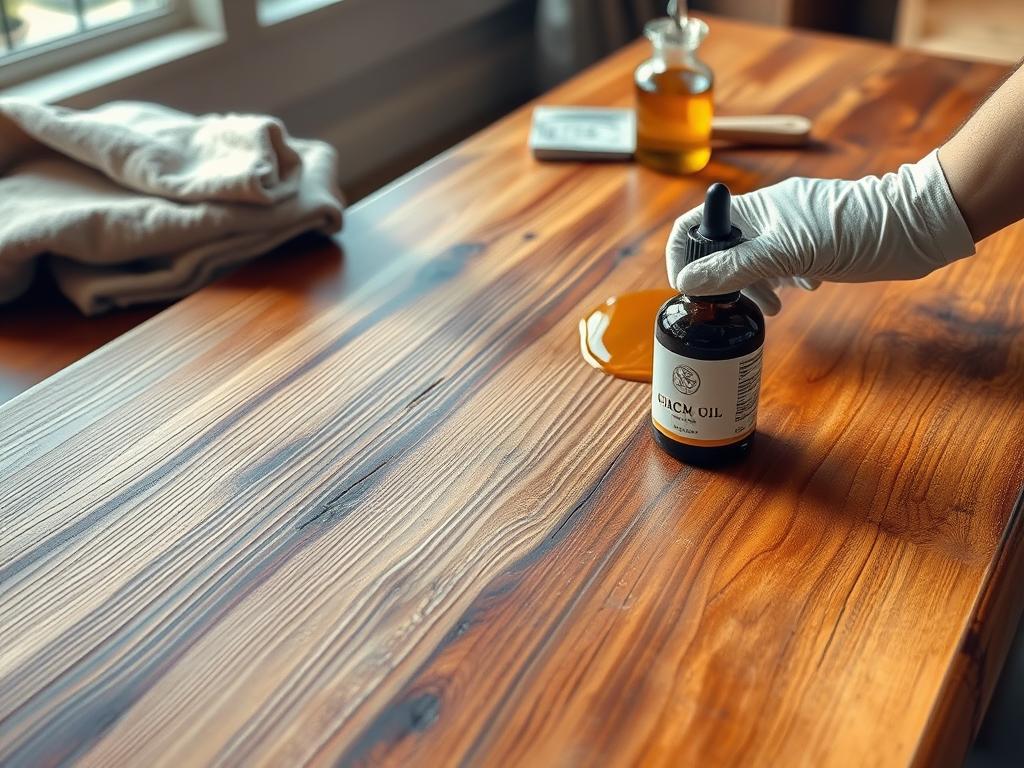
Caring for hickory wood is not hard but it keeps its beauty and strength for years. By following these care tips, you can enjoy hickory wood’s beauty without worrying about damage.
Hickory Wood vs. Other Hardwood Options
Choosing flooring or furniture means looking at hickory and other hardwoods. Hickory is known for its toughness and beauty. This part talks about hickory’s cost and how it compares to oak.
Comparing Cost and Availability
Hickory wood costs between $5 and $12 per square foot. This is because it’s very hard and takes a lot of work to install. Oak, priced from $3 to $10 per square foot, is cheaper. Red oak is often less expensive than white oak.
Performance Against Other Hardwoods
Hickory is the hardest domestic hardwood, with a Janka rating of 1820. It’s perfect for places with lots of foot traffic. White oak has a rating of 1360, and red oak is at 1220. This means hickory is less likely to get dented or scratched.
Both hickory and oak are great choices for homes. Knowing about hickory’s cost and how it compares to other woods helps you decide.
Conclusion
Hickory wood is truly special because of its durability and beauty. This guide has shown us why hickory is so strong, with a Janka hardness score of 1820. It’s more than 30% stronger than white oak.
It also stands up well to moisture, making it great for different climates. This means it lasts longer and needs less care. Homeowners will find it a wise choice.
Even though hickory flooring costs more than oak or ash, it’s worth it. Its unique grain and colors add beauty to any space. It’s perfect for homes and businesses alike.
With solid and engineered options, you can find the right hickory for your project. Hickory is a great choice for any building project. It makes spaces look better and last longer.
We hope this guide has helped you understand hickory’s value. Whether it’s for your home or a business, hickory lumber is a smart pick. It brings durability and beauty together.
FAQs
What makes hickory wood a popular choice for flooring?
Hickory wood is loved for flooring because it’s very durable. It has a Janka hardness rating of 1,820. Its dense structure also makes it resistant to wear and denting, perfect for busy areas.
Is hickory wood suitable for outdoor applications?
Hickory wood is very durable but not for outdoors without sealing. It can get damaged by moisture. It’s best for indoor use like furniture and flooring.
Can hickory wood be stained successfully?
Yes, hickory wood takes stains well, letting you change its look. The right stain and seal can make it even more beautiful and protect it.
How do hickory wood floors compare to other hardwood floors?
Hickory wood floors are better than many others because they’re hard and durable. Compared to oak and maple, hickory looks different and lasts longer.
What maintenance is required for hickory wood furniture?
To keep hickory wood furniture looking good, clean it regularly. Use pads under furniture and fix scratches or dents right away. This keeps it beautiful and strong.
What are the main species of hickory used in woodworking?
The main types of hickory for woodworking are Pignut Hickory and Shagbark Hickory. Each has its own grain, color, and availability. Choosing the right one is key for your project.
Is hickory considered a hardwood?
Yes, hickory is a hardwood because of its dense structure and broad leaves. It shows the qualities of hardness, durability, and versatility that hardwoods have.
What applications are best suited for hickory wood products?
Hickory lumber is great for flooring, furniture, tool handles, and sports equipment. Its toughness and beauty make it good for homes and businesses.
How does hickory wood withstand scratches and dents?
Hickory wood’s high density and hardness make it resistant to scratches and dents. But, it still needs regular care to stay in top shape.
